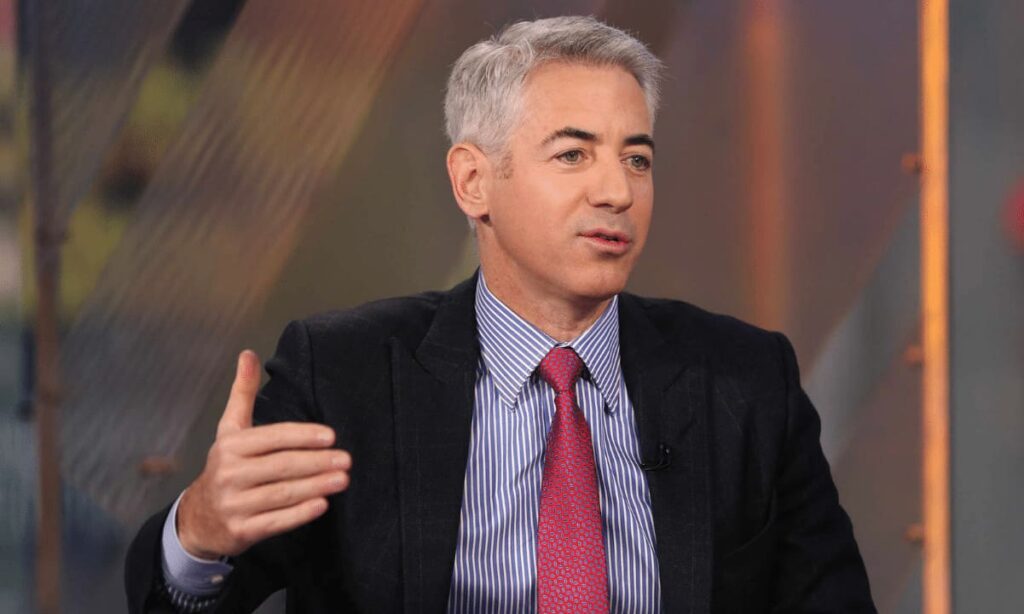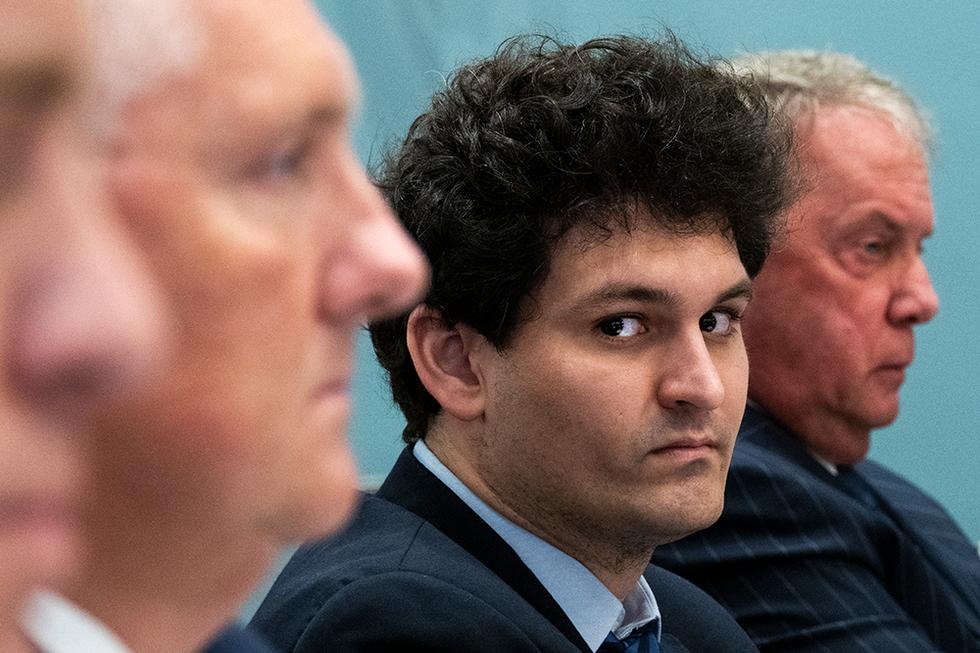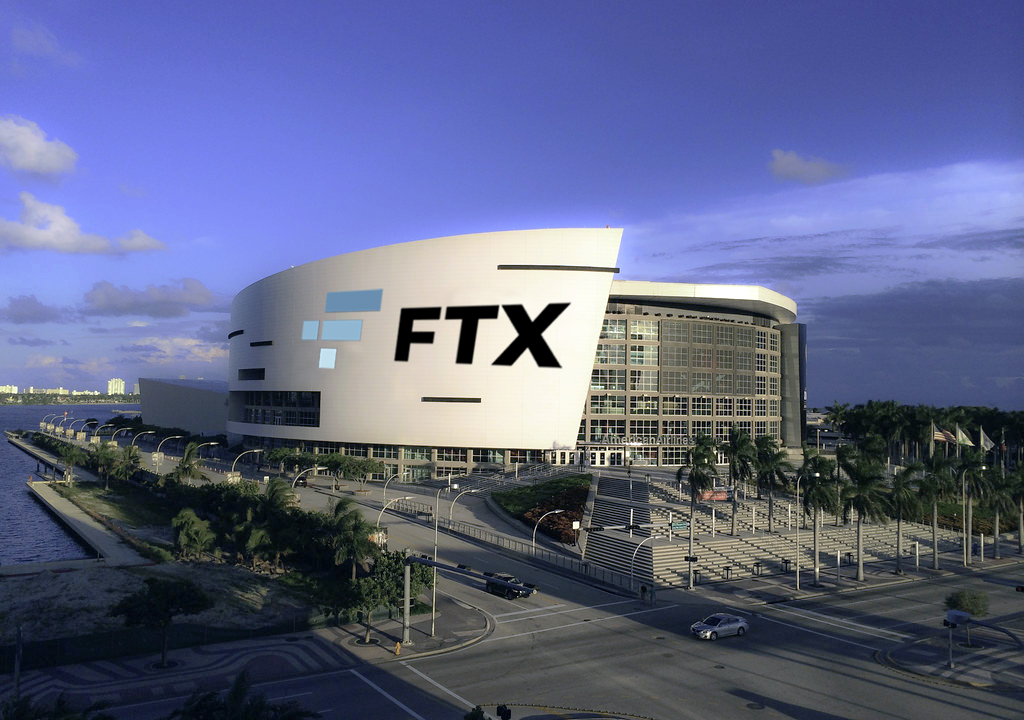Genesis Global Capital, a crypto lending company, has hired restructuring advisors to discuss a possible bankruptcy, reports revealed on Tuesday.
The firm has sought advice from investment bank Moelis & Company to discuss its options, adding it has not made a final decision on the matter, a 22 November New York Times report claims, citing sources familiar with the matter.
The investment firm also worked with Voyager Digital after the latter suspended transactions in early July this year, citing the need to explore “strategic alternatives” just days ahead of its bankruptcy.
The company filed Chapter 11 bankruptcy in New York to restructure and “return value to customers,” it said at the time.
We have hired the best advisors in the industry to explore all possible options. Next week, we will deliver a plan for the lending business. We’re working tirelessly to identify the best solutions for the lending business, including among other things, sourcing new liquidity.
— Genesis (@GenesisTrading) November 16, 2022
In a statement to numerous media outlets, a Genesis spokesperson said: “We have no plans to file bankruptcy imminently. Our goal is to resolve the current situation consensually without the need for any bankruptcy filing. Genesis continues to have constructive conversations with creditors.”
According to sources, the troubled lending firm is seeking from $500 million to $1 billion to tackled issues from “unprecedented market turmoil,” namely the collapse of cryptocurrency trading exchange FTX.
Bloomberg reported on 22 November that Genesis owes creditors $2.8 billion. Roughly 30 percent of the loans funded “related parties” such as its parent company Digital Currency Group and its affiliate and lending wing, Genesis Global Trading. Grayscale Investments has also been affected.
Digital Currency Group owes roughly $575 million to Genesis Global Capital by May 2023, a letter from the former’s chief executive Barry Silbert read.
8) We have compiled more information for investors on our website. We hope to alleviate any potential uncertainties and reaffirm the safety and security of the assets underlying Grayscale’s products. https://t.co/MvTfUoKCdE
— Grayscale (@Grayscale) November 18, 2022
Grayscale Investments tweeted to investors: “the safety and security of the holdings underlying Grayscale digital asset products are unaffected”
Silbert also stated that his firm was set to receive $800 million USD in earnings this year, adding: “We have weathered previous crypto winters and while this one may feel more severe, collectively we will come out of it stronger.”
Crypto investors across institutions have hit back at negative commentary linked to the collapse of FTX, indicating record levels of inflows from short-investment crypto products.
CoinShares chief strategy officer James Butterfill said that 75 percent of inflows from institutional cryptocurrency investors last week were short investments on the decline of crypto prices.
Deeply negative sentiment in crypto assets with the largest inflows into short-investments on recordhttps://t.co/zW0ZfGZDTo
— James Butterfill (@jbutterfill) November 21, 2022
He stated the bets were potentially “a direct result of the ongoing fallout from the FTX collapse,” adding total assets under management (AUM) from institutional investors stood at $22 billion.
Investment products on Ether reached $14 million, the “largest weekly inflow on record,” according to Coinshares. The company speculates that “renewed uncertainty” on Ethereum’s Shanghai upgrade along with massive amounts of the currency on the FTX exploiter were potential causes for negative outlooks.
Short investment product inflows for Bitcoin (BTC) also reached $18.4 million with a reported AUM of roughly from $173 million to $186 million.
FTX, Crypto Fire Sale?
The findings show a small increase from the previous week, which saw 14-week highs from crypto products reaching $42 million. Bitcoin short products also reached inflows of $12.6 million, reports found.
Numerous exchanges have also been hit by investors taking their holdings offline to self-custody exchanges. Coinbase, one of the world’s largest exchanges, recorded its lowest share prices in history on Monday, dropping 8.9 percent or $41 per share, MarketWatch data revealed.
The number of #Bitcoin held on exchange have fallen 27% from their 2020 peak and 11% this year. Are people losing trust in centralised exchanges? Quite possibly.. pic.twitter.com/0WY3NIIDxe
— James Butterfill (@jbutterfill) November 14, 2022
Its stocks have plummeted roughly 88 percent after the firm publically traded shares on 16 April last year.
Cryptocurrencies have also suffered from the ongoing fallout from FTX, with Bitcoin (BTC) nosediving 4 percent to roughly $15.725.02, CoinGecko data showed. Ether also tumbled 8 percent to $1,081.56.
Uniswap, a decentralised exchange (DEX), updated its privacy policy on 11 November, the same day of troubled exchange FTX’s bankruptcy. Updates to the policy have sparked a firm backlash from the crypto community, with many slamming its intent to store and collect user data.
In the blog post, the company explained that innovations in the blockchain that web3 hoped to “reclaim users’ privacy and choice” following decades of eroded policies from internet businesses.
Continuing, it said: “That’s why we’re releasing a new Privacy Policy today – we want to be crystal clear about what data we’re protecting and how we use any data we collect. Transparency is key. We never want our users to be surprised.”
The post later updated on 17 November, stating it would collect blockchain data, user device data, including browser and operating system information, and interaction with service providers.
It added that collected information would not include information that could personally identify users such as their name, address, email, or IP, among others.
The switch in policy received significant pushback from privacy advocates, who lambasted the company for backtracking on cryptocurrency’s core values of anonymity and privacy.
According to privacy-focused crypto platform Firo, Uniswap’s privacy push created a “dangerous precedent” for DEXs.
While we have the utmost respect in what @Uniswap has built, we strongly reject the incorporation of data collection to track user behaviour and onchain activity. This sets a dangerous precedent for DEXes. https://t.co/h4kCiQKtl7
— Firo $FIRO (@firoorg) November 21, 2022
It tweeted at the time: “While we have the utmost respect in what @Uniswap has built, we strongly reject the incorporation of data collection to track user behaviour and onchain activity. This sets a dangerous precedent for DEXes.”
STOP using @Uniswap $UNI
— Yoda Research (@YodaResearch) November 21, 2022
They’ve expanded their collection of on/ off chain data connected to your wallets
eg
– mobile deviceID
– cookies
– localStorage
– device/ browser language
– screen wallets via 3rd party
…
🚨even share social media activity with analytics provides. wtf
A representative from Yoda Research urged people to stop using Uniswap’s platform, stated they expanded on and off-chain data from wallets to “mobile deviceID, cookies, localStorage, device/ browser language, [and] screen wallets via 3rd party.”
“[They] even share social media activity with analytics [providers]. wtf,” it concluded.
DEX SpookySwap affiliate OwenP also criticised the move to store and collect backed information as strange, adding: “We were contacted […] by an infrastructure provider once who asked about our backend and what info we kept we were shocked by the question. ‘None of course’ [was] the answer.”
Transparency Push after FTX Collapse
Exchanges such as Binance, Crypto.com, and Solana vowed full transparency for their millions of users, adding they would publish “audited proof of reserves” following the collapse.
Crypto.com chief executive Kris Marszalek has joined a growing list of cryptocurrency firms publishing their “audited proof of reserves” in the aftermath of the FTX crypto scandal.
The comments come after crypto exchange FTX.US, Alameda Research, and 130 affiliate firms fell bankrupt on 11 November, sparking several exchanges to push for more transparency for their clients.
“[We] will publish the list of cold wallet addresses and balances for major assets within 24 hours. Full transparency,” Solana tweeted at the time.
Bill Ackman, a major hedge fund manager and billionaire, has doubled down on his support for cryptocurrencies. In a recent Twitter thread, he backed crypto amid the ongoing FTX crypto crash.
The Pershing Square Capital Management founder said in his 20 November tweets that “crypto is here to stay,” despite the bankruptcy of FTX and subsequent collapse of firms linked to the troubled exchange.
He also called for tighter regulations and for removing “fraudulent actors” in the industry.
To be clear, I am not advocating for any particular crypto project. Rather, I am making the case that crypto can facilitate potentially useful and important businesses that heretofore could not exist. That said, the success of any individual project is a function of the ultimate https://t.co/SvpQMHrt0y
— Bill Ackman (@BillAckman) November 20, 2022
He added: “I think crypto is here to stay and with proper oversight and regulation, it has the potential to greatly benefit society and grow the global economy.”
Despite difficulties in the market, he said that cryptocurrencies would improve their fraud prevention capabilities, adding: “The problem with crypto is that unethical promoters can create tokens simply to facilitate pump and dump schemes. It may in fact be that the vast majority of crypto coins are used for fraudulent purposes rather than for building legitimate businesses.”
To crack down on “fraudulent actors,” he urged incentivisation for “legitimate” crypto investors to expose and tackle “fraudulent” cryptocurrency investors increasing potential regulatory intervention “that will set back the positive potential impact of crypto for generations.”
Speaking further, he said: “I was initially a crypto skeptic [but] I have come to believe that crypto can enable the formation of useful businesses and technologies that [before now] could not be created. The ability to issue a token to incentivize participants in a venture is a powerful lever in accessing a global workforce to advance a project.”
The comments come after Sam Bankman-Fried’s crypto empire collapsed in November due to a massive liquidity crisis and subsequent liquidation of FTX’s native token, FTT, on rival firm Binance. This triggered a huge bank run, with millions of clients losing their funds on the bankrupt platform amid the turmoil.
World-renowned crypto investor and blogger Anthony Pompliano has rallied behind the embattled crypto industry amid the collapse of Sam Bankman-Fried’s FTX.
At the Texas Blockchain Summit on Thursday, he stated that market forces would remove negative players in the cryptocurrency sector as quickly as bad businesses.
He told the audience: “It might be a little counterintuitive, but the free market is a hell of a f*cking referee. If you watch what just happened, this industry is who held the industry accountable,” he said.
According to him, the “judge, jury, and executioner” had been the ” was the “free market and the industry itself.”
Pompliano added: “CZ is the one who used market forces to take that company [FTX] down.”
Explaining further, he added: “At the end of the day, the judge, jury, and executioner was the free market and the industry itself […] The good people, they survive, the bad people, they end up getting washed out.”
He explained on CNBC in a recent discussion this week that many people were uncertain of what was taking place with the market. Continuing, he said he had business funds on FTX’s exchange along with advertising relationships.
Here is my appearance with @ScottWapnerCNBC from earlier today.
— Pomp 🌪 (@APompliano) November 15, 2022
Bitcoin is one of the most important technologies in the world and these conversations help to sharpen how we all think about what is developing.
I appreciate Scott’s willingness to always discuss.
Part 1: pic.twitter.com/oFpNh7Yxma
He added that Bitcoin was “one of the most important technologies in the world,” adding open conversations helped people to “sharpen” people’s understanding of current developments.
Pompliano has remained a staunch Bitcoin fan, namely after launching Morgan Creek Digital Assets in 2018. He founded the North Carolina-based firm with Mark Yusko and has defended the crypto mining industry’s use of energy consumption, stating that “crucial things in the world use energy.”
Based on my conversations over the last 24 hours, people are drastically underestimating how much damage has been done this week to institutional interest in both bitcoin and the broader crypto ecosystem.
— Pomp 🌪 (@APompliano) November 10, 2022
In a 10 November tweet, praised the state of the cryptocurrency market, stating that people were “drastically underestimating how much damage” had been done to interest in “Bitcoin and the broader crypto ecosystem.”
He said that Bitcoin would not just survive, but thrive “in the coming years,” adding: “But we shouldn’t ignore the fact that this week was a set back for everyone, regardless of what corner of the industry you play in.“
Concluding, explained: “When the confidence game is over for the crypto industry, the market comes back to Bitcoin.”
People have taken to social media to speculate on the pricing of Bitcoin (BTC), with many debating on whether bullish or bearish investors would profit amid expiring BTC options on Friday.
Due to the FTX debacle’s liquidity collapse, thousands of crypto enthusiasts have lost access to their funds on the fallen crypto exchange, where investors saw $290 million in leverage buyers liquidate their holdings.
Bitcoin bulls have needed to aim high at $20,000 or more as a huge cache of weekly options totalling $600 million are set to expire on 18 November, holding from 25 October for nearly two weeks, analysts have speculated.
Actual totals may be lower than estimated, allowing bear speculators to bet on an $18,000 or higher mark following after investors dumped thousands of BTC after embattled crypto exchange FTX went bankrupt.
Bitcoin prices readjusted following the collapse, falling to prices from $15,800 to $17,800 over the last week, with investors fearing the crisis spreading to other corners of the market, forcing investors to sell their crypto positions.
FTX also caused people to lose massive losses, including crypto lending platform BlockFi, who had $400 million in credit assets on FTX US. Liquid, a Japanese cryptocurrency exchange, also faced similar issues following the crisis.
Who Laughs Last?
According to reports, Bitcoin bears can potentially snap up a $120 million bonus by keeping Bitcoin (BTC) under $16,500.
Should Bitcoin remain below $17,500 on 21 October, roughly a tenth of total call options will remain. Reports add that a right to buy Bitcoin priced at $18,000 to $19,000 per coin would become worthless if it trades below the expiry price, indicating a need for BTC to pump beyond $18,00 to succeed.
On Friday, $600 million worth of Bitcoin options expire, providing bears justification to price BTC beneath $16,000.
— The Alpha space (@TheAlphaspace1) November 18, 2022
For Friday’s $600 million BTC options expiry, bears are better positioned, but if Bitcoin prices rise beyond $18,000, bulls could turn the tables.
According to Twitter user The Alpha Space, Friday’s expiry date for BTC options would provide “bears justification to price [it] beneath $16,000.”
It added: “For Friday’s $600 million BTC options expiry, bears are better positioned, but if Bitcoin prices rise beyond $18,000, bulls could turn the tables.“
#Bitcoin Analysis: Today Options expire, thats why (stock) markets are hovering arround key levels. Clearly Bullish strength is lacking. Bears will most likely push down price next week. Expecting 14k$ #BTC, which is very likely to be the last dip👀 pic.twitter.com/DiO7wsxAXz
— JimCramerIsSus (@CountDestroyer2) November 18, 2022
Another Twitter user commented that the expiring options were the likely reason why stock markets were “hovering around key levels.”
She explained further that bullish strength was “lacking” and that bears would “most likely push down the price next week.”
“Bears will most likely push down price next week. Expecting 14k$ #BTC, which is very likely to be the last dip,” she concluded.
The Australian Securities Exchange (ASX) recently announced it had cancelled plans to allow clearing and settlements systems to use the blockchain.
ASX said in a Thursday statement it had halted activities for its Clearing House Electronic Subregister System (CHESS) replacement project after global IT consultancy Accenture conducted an independent review.
The review revealed “significant challenges with the solution design and its ability to meet ASX’s requirements.”
Accenture’s 47-page report concluded that such business workflows were “not tailored for a distributed environment,” and that the projects completion was too complex and uncertain.
It added: “Current activities on the project have been paused while ASX revisits the solution design.”
ASX had attempted to complete a distributed ledger technology (DLT) as the successor to its ageing, 25-year-old CHESS system, which managed transaction settlements and recorded shareholdings.
It aimed to launch in 2020, but was hit by the COVID-19 pandemic and calls for further testing.
Responses to ASX SNAFU
The Exchange’s chairman, Damian Roche responded, stating there were “significant technology, governance, and delivery challenges” to address.
Reserve Bank of Australia (RBA) Governor Philop Lowe slammed the decision as “very disappointing.”
Australian Securities Investment Commission (ASIC) chairman Joe Longo added the ASX had “failed to demonstrate appropriate control of the program to date,” which had “undermined legitimate expectations that the ASX can deliver a world-class, contemporary financial market infrastructure.”
According to figures, the ASX cost taxpayers from $164.6 million to $171.3 million.
Australia has further pledged to build a framework for regulating cryptocurrencies due to the ongoing crypto crisis, which erupted in mid-November.
A Wednesday AFR report cited a spokesperson for the Australian Treasury, who stated Canberra aimed to regulate crypto markets next year to protect investors.
The news comes after FTX collapsed around 11 November, with the Treasury stating it would monitor the fallout of the disgraced crypto exchange. This would include “further volatility in crypto-asset markets” and additional “spillovers into financial markets more broadly.”
The spokesperson added: “These developments highlight the lack of transparency and consumer protection in the crypto market, which is why our government is taking action to improve the regulatory frameworks while still promoting innovation.”
Treasurer Jim Chalmers’ spokesperson concluded: “We are closely monitoring the fallout from the FTX collapse, including further volatility in crypto asset markets and any spillovers into financial markets more broadly.”
Australian Crypto Proposal
Crypto assets were “increasingly widespread and” even began appearing on large sporting event advertisements. It urged regulators to ensure customers investing in crypto were “adequately informed and protected,” according to a recent Treasury letter.
Assistant Treasurer, The Hon Stephen Jones MP, continued in his letter, stating the Albanese Government would take a “more serious approach” to determine what was in the ecosystem and the risks involved.
He continued, stating: “The aim will be to identify notable gaps in the regulatory framework, progress work on a licensing framework, review innovative organisational structures, look at custody obligations for third party custodians of crypto assets and provide additional consumer safeguards.”
Crypto Crackdown?
It would create a system of “capital adequacy and auditing standards to demonstrate the operational integrity” for such platforms, he said. Talwar added that it was crucial to do so as many exchanges offer high-yield perks to compete with other platforms, despite a greater risk to investors.
Australian regulators could also lead the industry in regulating digital assets, which may include a ‘token mapping’ platform for identifying how to regulate assets.
He concluded: “When Australia brings in technology-enabling custody rules for centralized holders of crypto-assets, we will either be a leader in the space, or catching up, depending on how fast other jurisdictions, like Singapore and Europe, move to make rules.”
The comments come after the collapse of the FTX exchange, Alameda Research, and nearly 130 linked firms prompted governments worldwide to consider tightening regulations on crypto markets due to the aftermath. Reports have found roughly 30,000 Australians and the collapse hit 132 companies.
Brian Armstrong, Coinbase’s chief executive and co-founder, lauded independent journalists and blockchain analysts working to tackle the ongoing FTX collapse and mismanagement of funds from Sam Bankman-Fried, its disgraced former CEO.
Armstrong tweeted on Wednesday that citizen journalists, rather than global media, had exposed the events linked to FTX’s liquidity crisis and Chapter 11 bankruptcy.
He slammed a recent NYT piece, stating: “Twitter has broken just about every piece of this FTX story using blockchain analytics, while NYT is writing puff pieces on a criminal.”
Twitter has broken just about every piece of this FTX story using blockchain analytics, while NYT is writing puff pieces on a criminal.
— Brian Armstrong (@brian_armstrong) November 16, 2022
Feels like a turning point for citizen journalism and loss of trust in MSM.
He added it was a “turning point for citizen journalism and loss of trust in [the mainstream media].”
Twittizens Unite on FTX
Speaking on the matter, Elon Musk tweeted his support for citizen journalists. He said at the time that “increased competition from citizens” would lead to increased accuracy “as their oligopoly on information is disrupted.”
Additional condemnation of the NYT piece include Polygon Studios chief executive Ryan Wyatt, who said that Sam Bankman-Fried had “committed significant crimes [which were] a disservice to all those impacted.”
Mainstream media will still thrive, but increased competition from citizens will cause them to be more accurate, as their oligopoly on information is disrupted
— Elon Musk (@elonmusk) November 11, 2022
One such journalism outlet, Whale Alert, found in early November that users had transferred roughly 23 million FTX tokens (FTT) to finance, totalling $584.8 million USD or 17 percent of market supply. The NYT did not write about the incident until 8 November, according to reports.
Twitter Spaces also hosted several meetings for The Roundtable Show, hosted by Mario Nawfal, which covered the crisis as it unfolded. It hosted several prominent people, including Kim Dotcom, Musk, and others, leading to a surge in interest related to the FTX scandal.
User Tobias Silver also revealed a major FTX Tron account hack, leading to a major investigation on the person responsible for the incident. News later revealed that Tether had blacklisted the people, found to be regular users, from moving roughly $47 million in Tether (USDT) from FTX to Kraken.
Kraken’s chief security officer later revealed them to be “normal people who have lost their life savings,” according to Silver.
Several major cryptocurrency-based firms have reportedly seen their fortunes and capital marooned on the disgraced FTX exchange, with three revealing massive losses in funding.
News from Galois Capital, Nestcoin, and New Huo Technology has triggered layoffs amid the ongoing FTX scandal, where the Bahamas-based company filed for Chapter 11 bankruptcy last week.
For the record, yes we did have significant funds stuck on FTX. No, we did not use any Bahamian method to move funds out.
— Galois Capital (@Galois_Capital) November 11, 2022
Galois Capital stated it had “significant funds” on the FTX exchange, which reports speculate could total up to $50 million in assets.
Nestcoin, a Nigeria-based web3 enterprise, stated it would have to lay off workers due to the aftermath of the FTX scandal. The company’s chief executive, Yele Bademosi, tweeted on Monday a letter detailing it could not receive funds from the bankrupt crypto exchange, leading to the mass layoffs.
It stated that, due to maintaining its assets on the FTX platform to “manage our operational expenses,” it could no longer pay its staff.
An update shared with our investors earlier today on the FTX incident and its impact on @Nestcoin. pic.twitter.com/0Mjo4SYF7R
— YB (25,25) ⏳ (@YeleBademosi) November 14, 2022
Hong Kong-based New Huo Technology, which owns cryptocurrency exchange Hbit Limited, also revealed on 14 November it could not withdraw $18.1 million USD of funds before FTX halted transactions.
According to Hbit, it would work to withdraw cryptocurrency holdings for its users “as soon as possible” but may not be able to withdraw them from the FTX exchange due to its bankruptcy proceedings.
Reports show that roughly $18.1 million in digital assets were on the FTX exchange. Huobi founder Li Lin stated he would provide around $14 million in loans to Hbit to process withdrawals.
Binance Scandal Erupts
The news comes after FTX filed for bankruptcy on 11 November, with its nearly 130 FTX Group entities such as Alameda Research and FTX.US facing the fallout of its liquidity collapse. The incident blocked users from receiving their holdings, with many losing critical life savings invested on the platform.
Binance and FTX entered a non-binding letter of intent for the latter to purchase the former, but Binance CEO Changpeng Zhao (CZ) later backed out of the deal, citing major compliance issues with FTX












